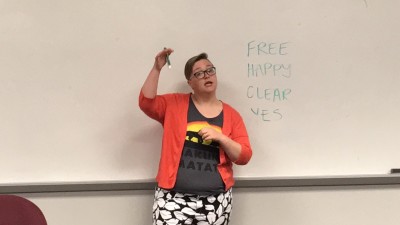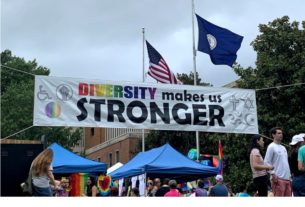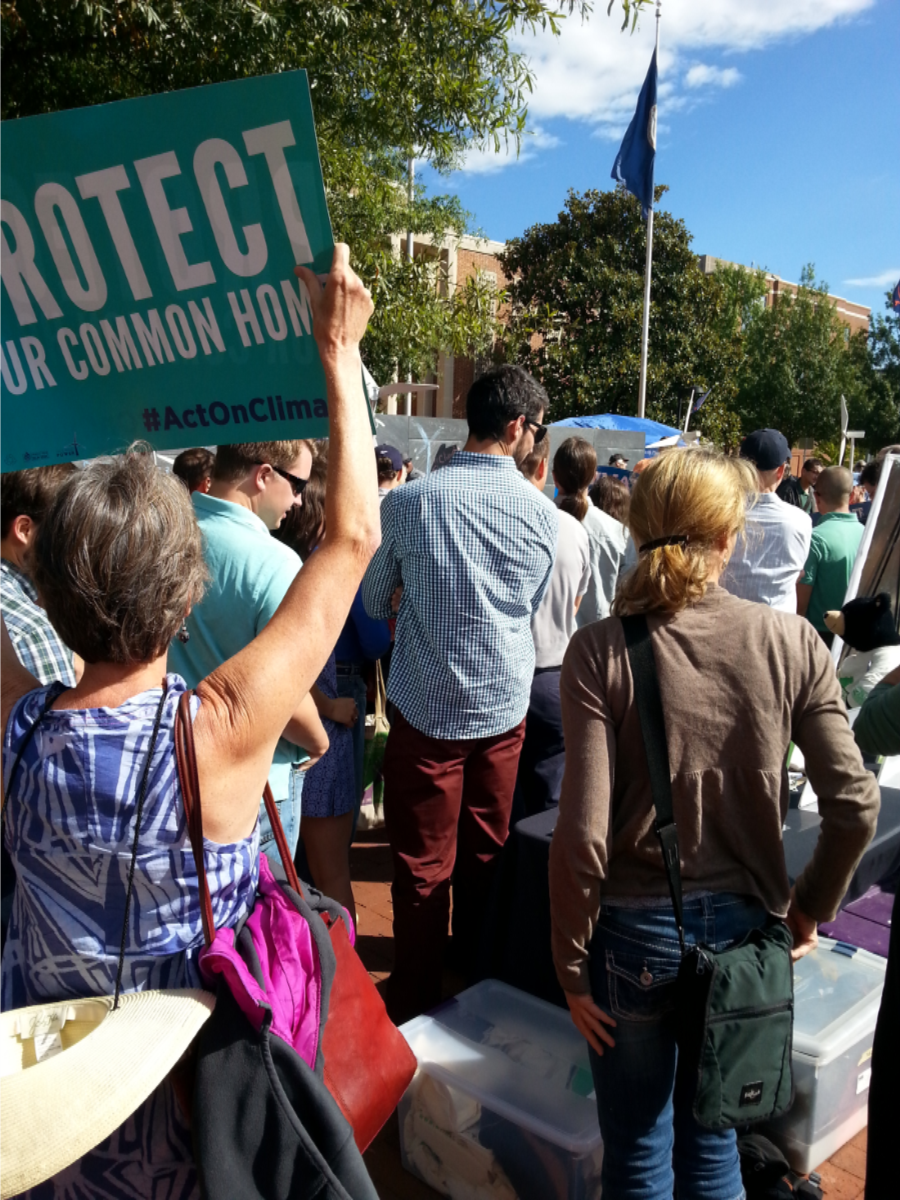
Title IX and its Presence on Campus

Charles Stish, staff writer
Between March 20 and 24, Piedmont Virginia Community College (PVCC) held a three-part event titled “What High School Didn’t Teach You.” Supported and planned by PVCC’s Student Government Association (SGA), LGBT+ Club, Phi Theta Kappa Honor Society (PTK), and Psychology Club, the event worked to present facts and information about sexual consent and diversities on college campuses, safe sex practices, and planned parenthood.
The first part of this weeklong seminar program was on Monday, March 20, and covered the topics of sexual harassment and violence, Title IX procedures, and ways people can fight against sexual violence on an everyday level.
Held in M229, the seminar was from 12-12:50 pm and had two guest speakers present their respective pieces on the subjects at hand.
The first speaker was PVCC’s Human Resource Manager and Title IX Coordinator Teresa Willis. Willis has been at PVCC for a year and half in her current occupational position and focused on the procedures and jurisdictions of Title IX at PVCC.
“So for the larger universities, like UVA, they have a Title IX office and a Title Nine Coordinator and all this. For smaller schools, like in our community college system, the Title IX Coordinator often wears different hats. My hat is HR Director and I also wear the hat of Title IX Coordinator because we don’t have as many issues here as you would in an institution that has dormitories, and sororities, and fraternities,” said Willis during her presentation.
Willis then explained as acting Title IX Coordinator, her responsibilities include investigating complaints and possible infractions on Title IX guidelines, resolving any infractions unbiasedly and appropriately, and preventing issues of a sexually violent, harassing, or stalking manner.
When a complaint is sent to her, Willis has around five days to begin investigating the issue further than just the report. Meaning she will have to set up separate meetings with the student who filed the report, the reported student, and other school and Title IX officials to effectively and accurately determine what the cause was, how it came to be, and how to put a just end to it for both parties. Some outcomes include a formal or informal warning, academic probation, academic suspension, or dismissal from school.
Willis said, “Sometimes people are a little uncomfortable with the details and I say, ‘For me to understand what happened don’t hold back, don’t be shy. Tell me exactly what was said, exactly what happened.’”
She also noted most cases of a Title IX breach at PVCC are of a verbal nature and are mostly caused by bad breakups between two people. That is to say, one party will begin harassing the other, making them uncomfortable and intimidated whenever they can.
While students can use Title IX and go through the school system to fix the issue, they can still report to the police about the issue. Police Officer Joe Hood was among the audience members during the seminar, and he added, “If you wanted prosecution underneath a criminal offense, you would have to report that to the police, the local jurisdiction, which would be Albemarle.”
When a college or university is the place where the violation occurred, a Title IX and a police investigation can take place at the same time or wait for the results of the other one to perform their respective duties.
It should also be noted that Title IX only goes as far as the school system, and any domestic issues should be reported to the police accordingly. Although, if a student were to report a domestic issue via Title IX, the school, or PVCC at least, can offer support and a safe haven for the student.
After Willis, Lexie Huston, a prevention educator at Charlottesville’s Sexual Assault Resource Agency, talked about sexual consent and ways for everyday people to put a stop to sexual crimes and violence.
Her presentation included the Happy, Free, Clear, Yes checklist that one can use to ensure there is consent in a relationship of any kind. The idea behind this checklist is to make sure there is happiness in the relationship, it is of free will, there is clear communication of intents, and there is a definite and coherent yes being said by both parties.
Huston said, “The idea here is to have a free, happy, and clear yes. Anything other than yes is a no.”
She then encouraged people to stand up and be active bystanders when they see a sexual crime taking place. Explaining that active bystanders perform some act to prevent or stop the situation at hand, unlike passive bystanders, who will not do anything. She gave a general idea, calling it The Three D’s, an active bystander can use to bring a halt to sexual violence. The first D is Direct, and that is to directly intervene by either a physical action or by making a concentrated move to bluntly end the situation. The second D, Delegate, is to call for aid whether it be friends, other bystanders, or the police. The third D is to Distract, to either draw focus to the situation indirectly or to be a decoy to allow the potential victim to slip away.
“When I talk about being a bystander, it’s really intimidating. You think, ‘Bystanders? What difference do they make?’ The reality is bystanders actually have more power [than anyone else] in any situation,” said Huston.
She gave the example of Green Dot, a bystander training program in Kentucky that worked to effectively condition normal citizens to combat sexual violence in different ways and forms. After Green Dot’s creation, the state of Kentucky found that sexual assault and violence had decreased by 30 percent.
Officer Hood added, in regards to civilians stopping these kind of acts, “If you are coming to the aid of someone who is under imminent danger, you are protected by the Good Samaritan law. Actually, as a citizen, you are expected to exercise this law.”
Huston ended by saying, “It takes small change, but little things often will add up to bigger things.”
To learn more about SARA you can visit their website at: http://saracville.org/
To learn more about Title IX, visit this link: https://www2.ed.gov/about/offices/list/ocr/docs/tix_dis.html







